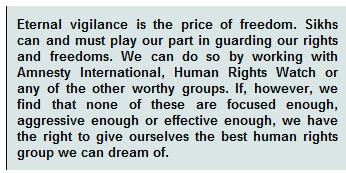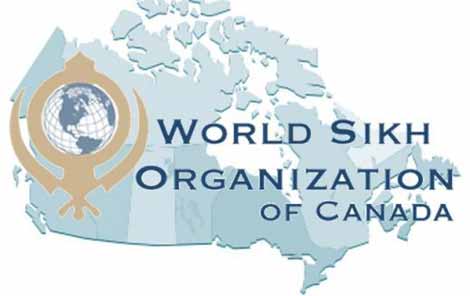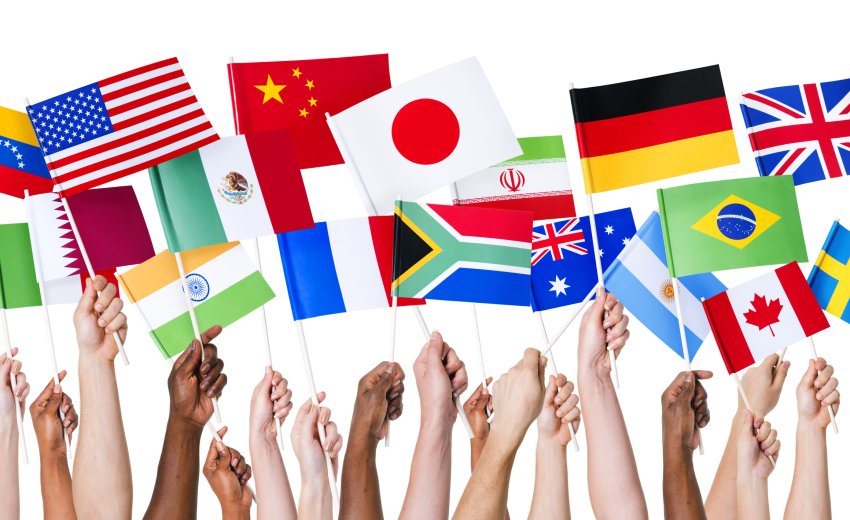Jasbeer Singh questions rights without responsibility and traces the historical nature of rights of man and how it progressed from the authoritarian to a pluralistic and tolerant character. He also touches upon the state of rights of Sikhs in Canada and calls for more focused and planned activism
Be alert, vigilant and responsible to enjoy continual enjoyment of rights. We believe that humans, like all other beings, are created by God. We also believe that Almighty God has created all humans as equals, in spite of visible natural variations like race, facial features, skin colour and gender, or societal differences like religion, language, cultural practices and dietary habits.
Obviously, ‘life’ is a gift of God and we ought to be able to enjoy such gift, as long as God intends us to. In other words, God alone can grant life and bring it to its natural end. Other beings, including humans, should not interfere in such Godly functions.
However, human desire to express one’s superiority, authority or power over others has often resulted in their interference in others’ enjoyment of the gift of life. In the event of targeted individuals not submitting themselves to the wishes of the mighty over-lord, they faced the use of oppressive force, at times brutal and even lethal.
As thinking and reasoning abilities improved, humans realized that interference in others’ enjoyment of life was inappropriate and unnecessary. A system of societal sanctions was evolved to prevent such transgressions. Modern systems of governance strive to achieve the objective through preventative legislation and penal measures against offenders.
Today, ‘Human Rights’ are viewed as inviolate entitlements or permissions to be enjoyed equally by all human beings without any arbitrary limitations or restrictions and irrespective of geographical location or any natural differences beyond the control of the subject individuals.
By contrast, most historical notions of rights were authoritarian and hierarchical, with different people being granted different rights, and some having more rights than others. This was a patent feature of society as it existed, and to a large extent still exists in India.
This system of ‘inequalities’ imposed through canons of religion, has been the most unfortunate characteristic of Indian society since Vedic times nearly 2500 years ago. The ruling elite – Brahmins, in collusion with the soldierly cadres – Kshatriyas, and the trading class – Vaishyas, stripped the majority of population of its basic rights and dubbed them as ‘Shudras’ or untouchables.
It is not hard to see, how this exploitative and dehumanizing stratification and division of society resulted in the sub-continent coming under subjugation of foreign invaders. The process started with Macedonian, Alexander the Great in the 4th century B.C. and continued until the middle of the 20th century A.D.
Analytical study of Robert Clive’s conquests over the sub-continent provides an undeniable account of the only valiant and largely successful opposition offered by the Sikhs. Could it not be argued that the Sikhs were able to do so, as a result of Gurus’ efforts to restore human dignity and equality in our badly fragmented society that was prone to exploitation by opportunists within and beyond the geographical boundaries?
 Guru Nanak’s expression of the natural concept of equality, nearly 500 years ago, must be viewed as the most assertive and unequivocal declaration of human rights in an environment of foreign subjugation of the already divided society in which the overwhelming majority had no claims to any kind of basic and fundamental rights.
Guru Nanak’s expression of the natural concept of equality, nearly 500 years ago, must be viewed as the most assertive and unequivocal declaration of human rights in an environment of foreign subjugation of the already divided society in which the overwhelming majority had no claims to any kind of basic and fundamental rights.
This concept was carefully nurtured for over two centuries by the succeeding Gurus before making this inalienable right, an integral part of the Sikh way of life culminating in the creation of an egalitarian Khalsa forged in the crucible of Amrit on the Baisakhi of 1699, which Khalsa stood steadfast to uphold rights and block the onslaught of suppressors.
Modern sociologists, psychologists and management experts are quite justified in highlighting the economic value of rights, freedoms and liberties. The illustrations above highlight the similar, demonstrated value of human rights from a national, political and military perspective. All invaders and foreign imperial interests (including the British) were using monetary and titular inducement as the motivating forces. They were very successful in achieving their material and territorial objectives. They all preserved their supremacy through tried and tested practice of denying the masses their God-given rights and freedoms.
Sikh Gurus, on the contrary, sought to restore badly eroded and denuded human dignity, human spirit, mutual respect, equality and collective honour. History bears testimony to the success of their pursuits. For the first time ever, in the entire recorded history of the sub-continent, Sikh Gurus challenged the established system of exploitation, denial of education, rights and dignities of the masses. It was the direct result of such serious and sincere reformative movement anchored in Sikh ideology and philosophy that the established practices of denial of education, rights, liberties and dignities were successfully challenged.
One may justifiably argue that the Gurus’ followers, at least our contemporary Sikhs, have drifted astray from the core values and they put so much energy and focus on ‘rights’ that they forget the crucially important ‘responsibility’ side of the coin almost entirely. One would hope, this phase would be short lived and the Sikh masses would embrace the fundamentals with same vigor and enthusiasm as our forefathers did three centuries ago.
The genesis of Universal Declaration of Human Rights (UDHR) is firmly rooted in the human rights abuses of World War II in which tens of millions died across the world. Particularly abhorrent was the Nazi holocaust and the concentration camps which were, to put it simply, industrial slaughter houses for the efficient killing of humans beings. The guilt associated with the weak response to the holocaust by the Western Allies and Roman-Catholic Church may have also played a role. Then there were the issues of carpet bombing of German cities and of two atomic bombs being dropped on civilian populations.
The general feeling was “never again”. A Commission on Human Rights was appointed by the UN to create an “International bill of rights” to apply to every human being regardless of such characteristics as sex, race and religion.
Many advances in human rights have been made since 1948 that have improved the lives of millions of people. End of apartheid in South Africa, the growth of democracy in Latin America and Eastern Europe, and the economic and social development in Asia are just few of the many achievements. But human rights practices often fall well behind the agreed standards.
While Article 7 of the UDHR declares that everyone must be "equal before the law", but Amnesty International reported that at least 23 countries have laws discriminating against women. Article 19 acknowledges "freedom of opinion and expression". Sadly, we are aware of 77 countries in which this peaceful expression of views would bring the threat of repression and even death. Article 25 stresses that "Everyone has the right to a standard of living adequate for their health and well-being", but eight out of 10 people around the world still live in poverty.
One may think that a very stable political landscape of Canada with its democratic constitution and an enviable Charter of Rights and Liberties must provide the most desirable environment for basic human rights to flourish. However, the reality is not as idyllic as one may be tempted to believe.
 One cannot deny that Sikhs in Canada enjoy better protection of their basic rights than their friends and families do in India or in France, for that matter. Canada’s independence of judiciary from the legislative and executive arms of the government guarantees that delivery of justice will not be compromised by whims and fancies of ruling politicians.
One cannot deny that Sikhs in Canada enjoy better protection of their basic rights than their friends and families do in India or in France, for that matter. Canada’s independence of judiciary from the legislative and executive arms of the government guarantees that delivery of justice will not be compromised by whims and fancies of ruling politicians.
Denial of opportunity to 376 Sikh passengers aboard ‘Kamagata Maru’ to land on Canadian soil was, perhaps, the first major incident in a long list of Sikh grievances. To their credit, the Canadian government admitted the error of actions taken in 1914, and apologized for the same. However, it provides no guarantee that such avoidable unfortunate errors would not occur in future.
Every few days we come across situations in which the Sikhs are compelled to seek intervention of the courts to ensure that people in authority or some over zealous official does not interpret the situation to deny Canadian Sikhs’ their religious and cultural rights. Many of these pertain to the Sikh articles of faith - the five K’s.
The World Sikh Organization of Canada has a commendable battle record and a list of successes in their pursuit of Sikhs’ rights. WSO has also made presentations on immigration, citizenship, refugee, security, terrorism and other human rights issues. WSO has also pleaded for rights to family reunification and relaxation of visa rules for Sikh preachers.
The global community of Sikhs must feel totally committed and connected to this ideal from a historical and a religious perspective. Eternal vigilance is the price of freedom. Sikhs can and must play our part in guarding our rights and freedoms. We can do so by working with Amnesty International, Human Rights Watch or any of the other worthy groups. If, however, we find that none of these are focused enough, aggressive enough or effective enough, we have the right to give ourselves the best human rights group we can dream of.

The veteran author is a keen observer of Sikh public affairs, economy, international affairs, technology, community activities and volunteerism. He may be reached via e-mail at [email protected]
